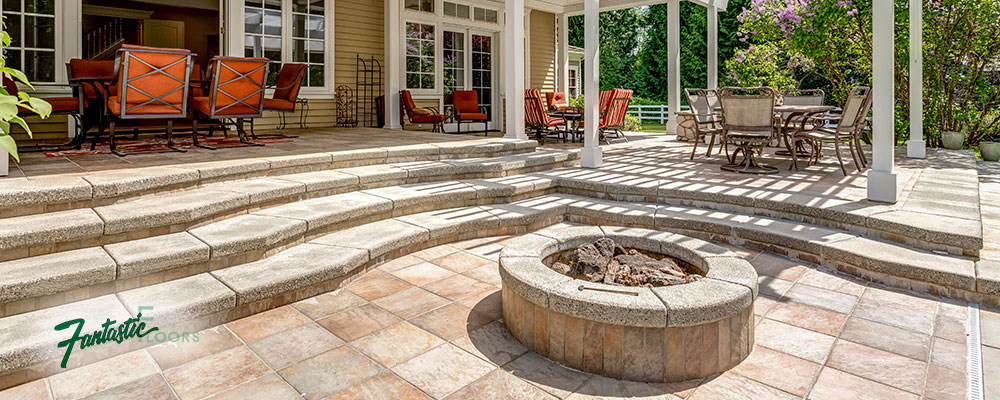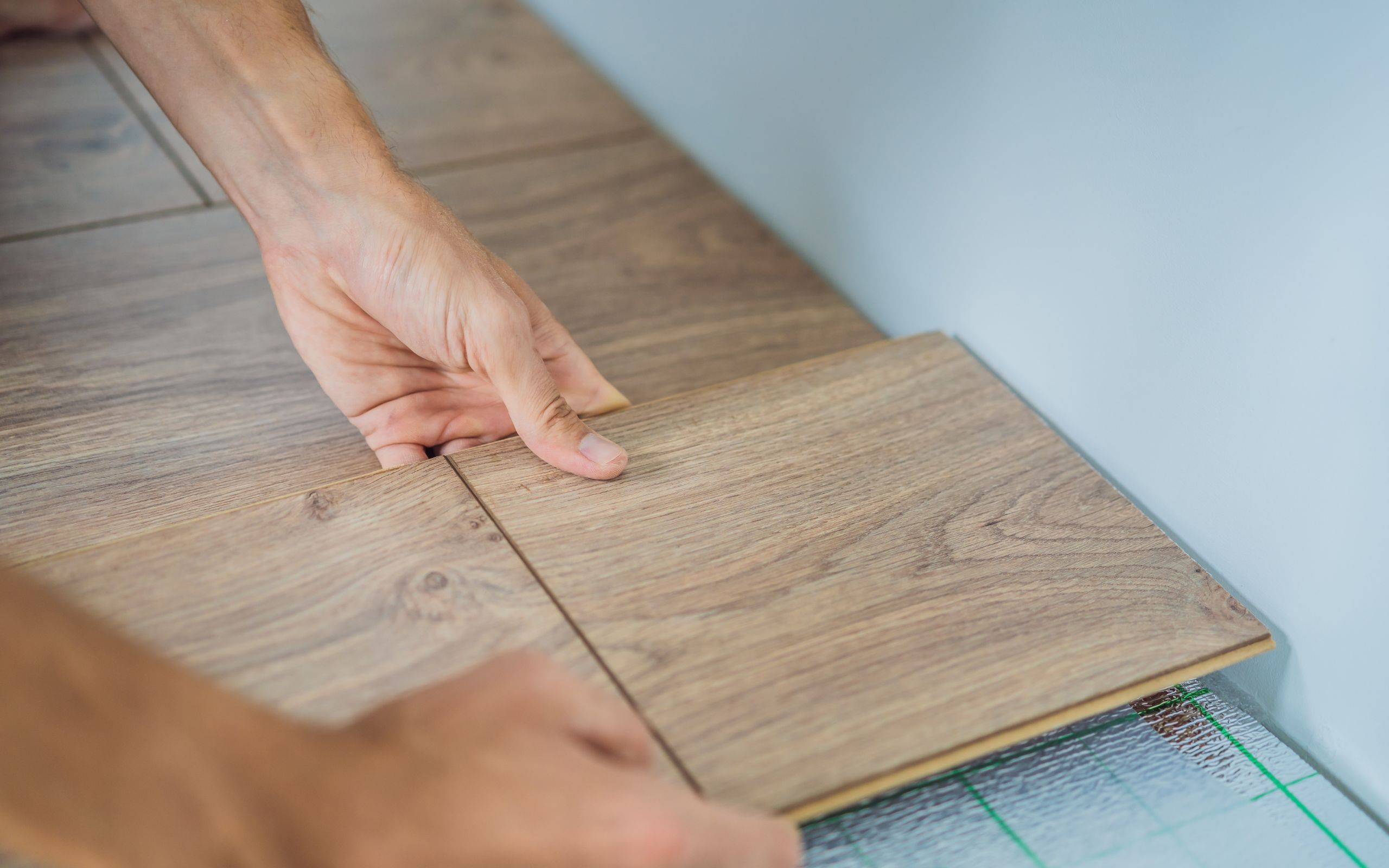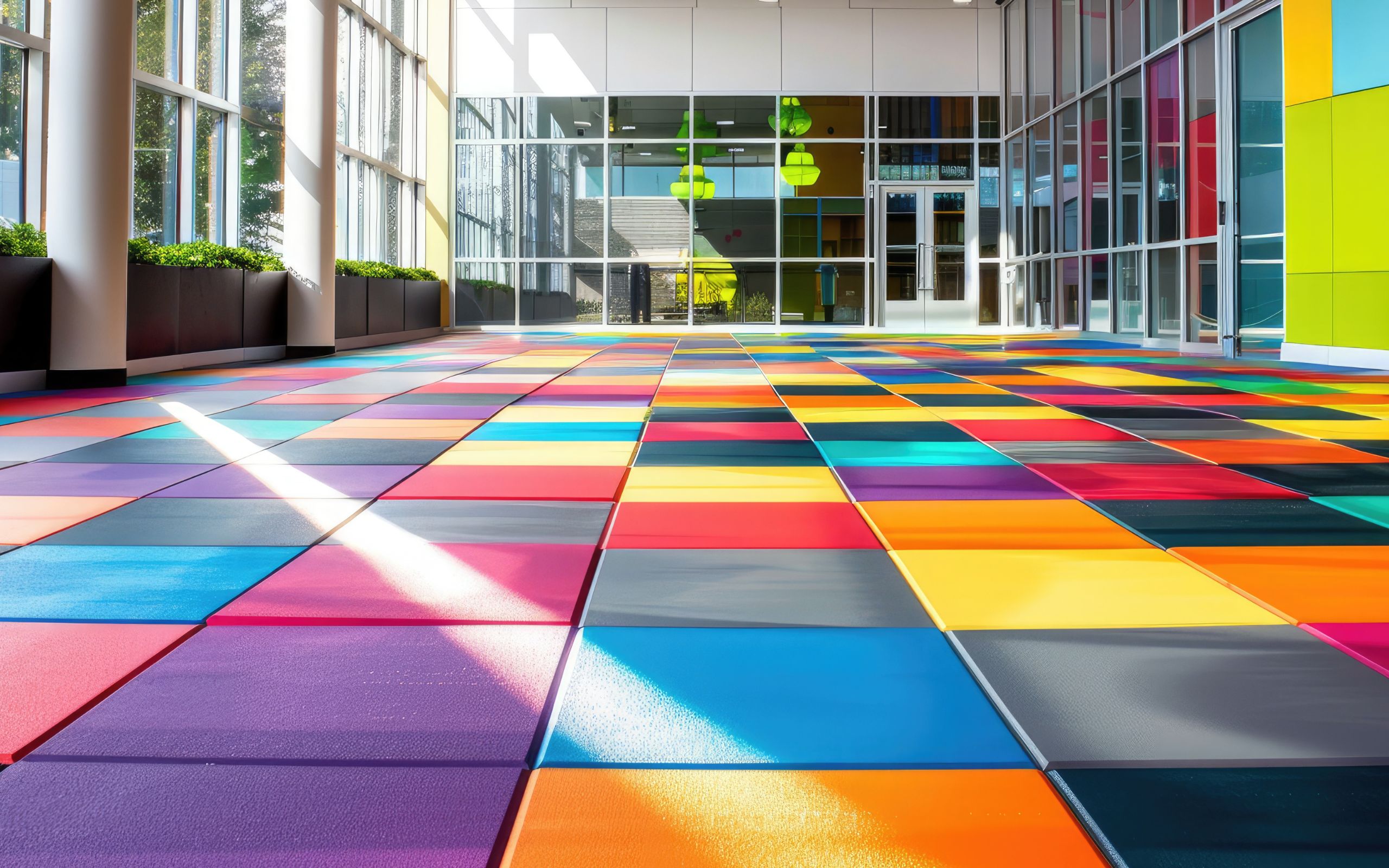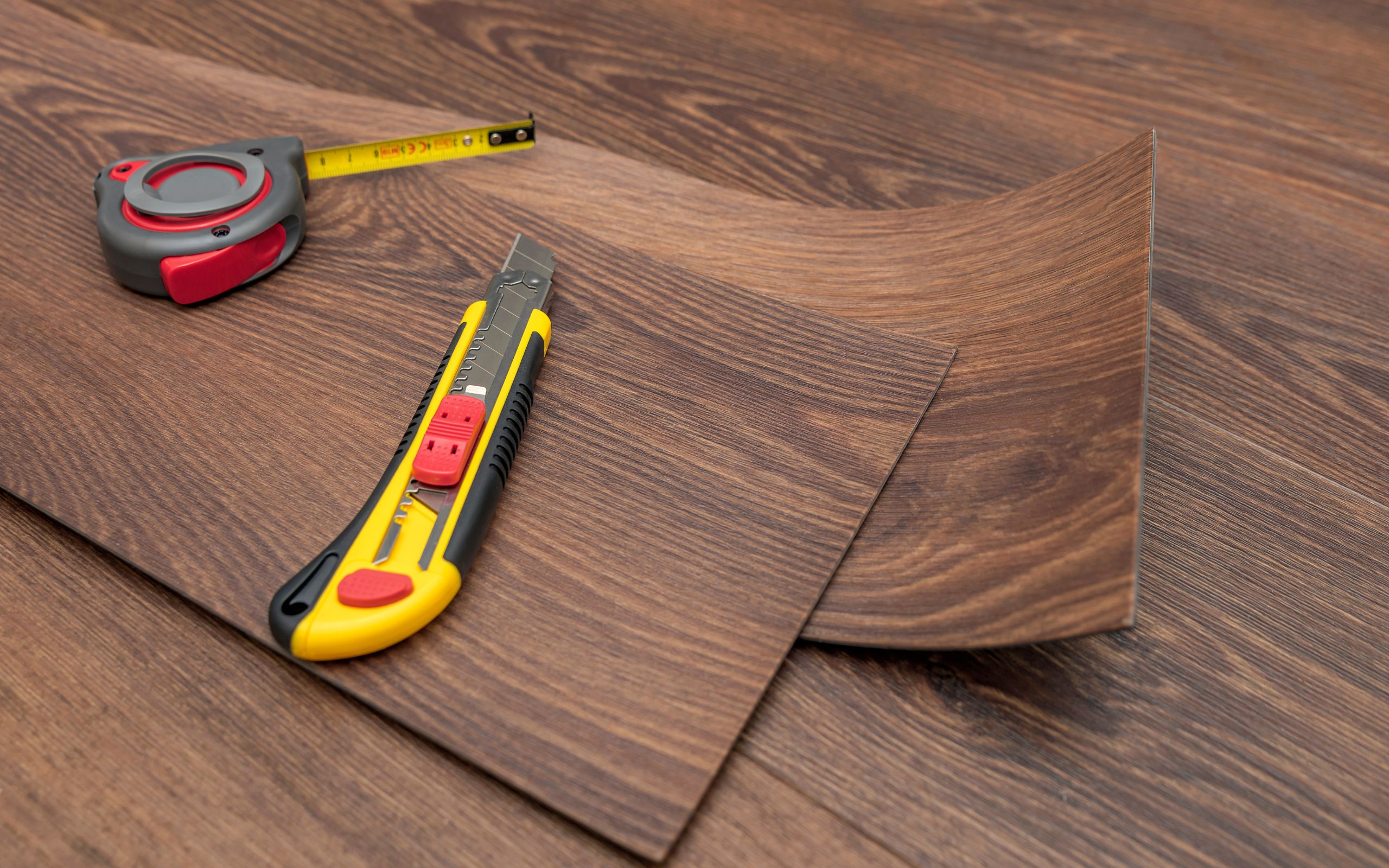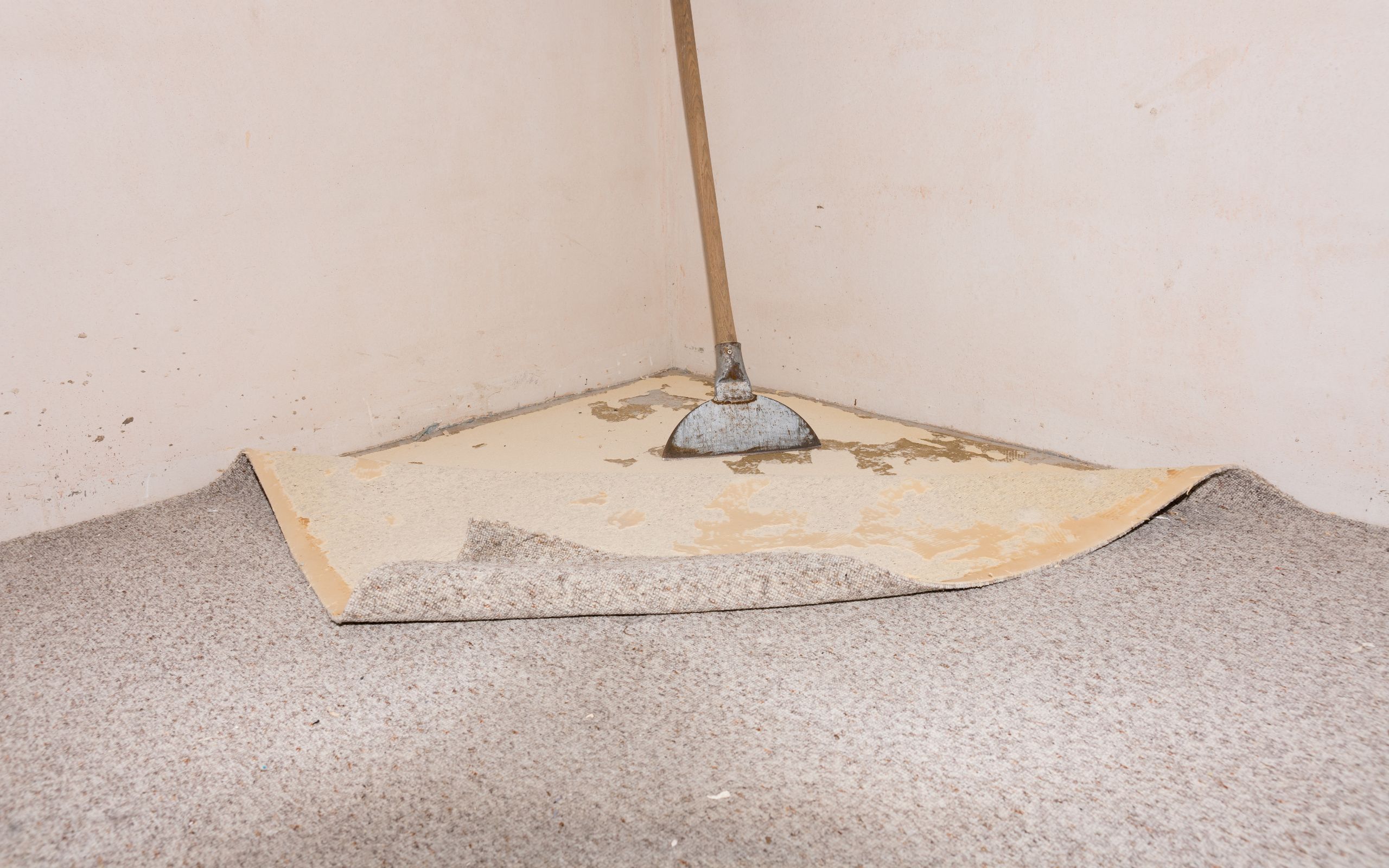Fantastic Floors
The vast majority of outdoor patios are constructed with some form of masonries, such as poured concrete (sometimes stained or stamped), or brick or stone paver products. But it is also possible to apply tile to a patio, an option that gives you gives you many more design choices. And laying tile can be a good way to dress up an existing concrete slab or brick patio when it grows old.
Retailers that offer tiles for exposed outdoor applications often sell a rather bewildering array of products, including some you may not have considered for outdoor use. Your determination of the right product depends a great deal on your climate and application. For example, an unsealed sandstone tile that is perfectly appropriate in the bone-dry climate of Arizona is not at all suitable for the damp climate of Maine, where freezing winter temperatures are routine.
Considerations
While many of the same considerations used for indoor tiles also affect your choice of outdoor patios tiles, there are some issues that need to be kept foremost in mind:
- Strength: Unlike the tiles used for indoor walls and floors, outdoor tiles need to be particularly strong and able to withstand a wide range of temperatures and weather conditions. And just how strong they need to be is dependent on the level of use you anticipate. A patio for a sedate retired couple calls for different materials than for a family with active children throwing play equipment around.
- Budget: A patio can be quite an expansive space, and covering it with luxury tile can cost far more than tiling a smaller indoor space, such as a bathroom. For this reason, the cost is a very important factor when choosing patio tile. The range in price can be enormous, from as low as $1 per square foot for a material such as carpet tiles or basic ceramic tile to $50 per square foot to have a high-end slate or soapstone patio installed.
- Style: Outdoor patios must blend in with the overall looks of the landscape and the architectural features and materials of the house. Choose materials with colors and textures that are consistent with the overall look of your property.
- Texture and slip resistance: The texture and "slipperiness" of a tile is far more important in outdoor applications than it is for indoor wall tiles or even indoor floor tiles. Moisture is often inherent on an outdoor patio, and the tile texture must provide some "tooth" that keeps users from slipping. Non-slip surfaces are critical for outdoor tiles, and some material choices are eliminated for this reason. The texture of the patio surface can also affect your choice of patio furniture.
- Weather conditions: If you live in an area exposed to the cycle of freezing and thawing, you will need an outdoor patio tile that can withstand extreme changes in temperature. Porcelain, for example, has a very low water absorption rate, while sandstone is fairly porous. If water is absorbed by a piece of tile and that water then freezes, the process can crack your tile or the break the joints between the tile.
- Light exposure: Although it's not often recognized, the amount of sunlight a patio gets has an impact on the best tile to choose. Bright, sunny spaces call for darker tiles, while dim, shady areas should be tiled with a brighter material that lightens up the space.
Common Tile Materials
- Porcelain - Porcelain tile is a particularly dense and strong form of ceramic, and so most porcelain tiles rated for flooring use can also work in many patio applications. The best choices will be textured, matt tiles without a highly glossy surface that will be slippery when wet. Most porcelain tiles are thick and sturdy enough to use on floors, but make sure your product is rated for such use. Prices vary quite widely for porcelain tile.
- Ceramic - Traditional ceramic floor tiles can be an acceptable choice for outdoor patios, provided they carry a PEI rating indicating sufficient strength. Generally speaking, though, ceramic tile is best suited for light-use patios, since it will not be as strong as other choices. If you do choose ceramic tile, make sure it is a floor tile sturdy enough for patio use; ceramic tiles marketed as wall tile are usually not strong enough for floor or patio use. Like porcelain tile, material costs vary widely for ceramic tile, though they tend to be cheaper than porcelain.
- Quarry - Despite the name, quarry tiles are no longer mined from natural quarries but are instead made from rather a very dense type unglazed clay. They are extremely strong and function very well as a paving material for patios. In fact, this form of tile was created specifically for outdoor use in courtyards and patios. Unlike ceramic and porcelain tiles, quarry tiles are available in a limited range of colors, including red, brown, or gray. Quarry tiles provide a Mediterranean look that is much prized by many homeowners. Even though they are usually unglazed, quarry tiles have good resistance to water, and their texture prevents them from being slippery when wet. Quarry tile is not a great choice for climates where winters are dominated by freezing temperatures. It is also somewhat notorious for being easy to stain. In the right climate, though, this is one of the best patio choices.
- Travertine - Travertine is a form of natural stone with beautiful texture and color. Considered a form of limestone, this stone is mined around natural mineral spring deposits. Although very attractive and hard, it has a slightly pitted surface that may collect dirt unless it is polished smooth. And highly polished travertine can be very slippery when wet. The quality of travertine varies considerably, depending on where it was quarried. For patio use, travertine from Turkey or Italy is regarded as a more water-resistant choice than stone from Mexico or China.
- Slate - Slate is one of the better choices for natural stone in outdoor patio locations. Slate is a metamorphic rock formed under great heat and pressure. It is very hard and durable, and also very resistant to water. And unlike some other natural stones, you can select a product with a natural texture that prevents it from being as slippery as some other natural stone. Many people think of slate as a dark gray or black stone, but it is actually available in a variety of colors, including purple, green, and orange.
- Granite - Yet another metamorphic natural stone sometimes used for patios, granite is a high-end, premium paving material, but it has certain drawbacks when used outdoors. Granite tile is usually highly polished, which can make it slippery when wet. And it is a relatively porous stone compared to other forms of tile; it will need to be sealed regularly to prevent staining and water penetration.
- Limestone - Limestone is a sedimentary rock that has been a favorite construction material for millennia, thanks to its relative abundance and ease of fabrication. Most limestone is found in various shades of tan, brown, red, or gray, and the lighter colors are especially good at reflecting heat. Limestone is a softer stone than slate or granite and thus can be rather easily scratched or chipped. And it needs to be regularly sealed to prevent stains. It is more appropriate for patios in dry climates and not well suited to regions with harsh winters.
- Soapstone - Named for its smooth, silky texture, soapstone is a non-porous natural stone that is quite resistant to water and staining. It has high heat resistance, making it useful in very hot climates. It is an excellent stone to use around swimming pools and performs well in wet, freezing climates.
- Sandstone - Sandstone is another sedimentary rock, even softer than limestone and subject to the same limitations. It forms from layers of sands compressed over time and has a beautiful texture. But it quite soft and subject to scratching, and needs to be regularly sealed to prevent staining and water penetration. This is another stone best suited for patios in dry climates without winter freeze-thaw cycles.
- Interlocking Plastic Tiles - A relatively new form of tile is represented by plastic tiles with interlocking edges. The advantage of these tiles is that the texture can guard against slips and falls, and they are easy for DIYers to install. Simply lay them out on a flat surface and interlock the edges. This is not the most elegant of patio solutions, but it can be a good way to cover an existing concrete slab patio that is in need of a touch-up. They are extremely durable and easy to remove when you need to. The tiles are perforated to allow water to drain through.
- Decking Tiles - These are large squares of wood or composite planking attached to backing strips, usually with interlocking edges. Usually made of a weather-resistant wood such as cedar or redwood, the effect of decking tiles is that of a ground level deck but without the need for an under-structure.
- Rubber - Often used for sports courts and other play areas, rubber tiles are similar to plastic interlocking tiles, featuring interlocking edges that join together to form a uniform, resilient surface. Very soft rubber tiles are available for covering areas where children play. Rubber tiles can also be a good choice around pools.
- Concrete - For the look of natural stone at a fraction of the cost, consider concrete tiles, which are molded from poured concrete and given textures and colors to resemble natural stone or high-end ceramic tile.
- Carpet - For something completely different, consider carpet tiles made from indoor-outdoor carpeting. Depending on the type, the tiles may be peel-and-stick, adhered with adhesive tape, or have interlocking edges. They can be easily installed over concrete slabs, and are easy to remove should a tile need to be replaced due to staining or damage.
Costs
Estimating costs of a tile patio is difficult given the enormous range of materials available and the differences in labor costs from one region to another. Natural averages, however, show the following:
- Clay tile (porcelain, ceramic, quarry): Materials can range from $2 to $30 per square foot; labor can range from $4 to $14 per square foot.
- Natural stone tile: Materials can range from $5 to $35 per square foot; labor ranges from $8 to $20 per square foot. Less expensive choices are sandstone, limestone, and travertine; more expensive options are soapstone, granite, and slate.
- Synthetic and wood tile: Costs for plastic, rubber, or carpet tiles average about $3 per square foot; most people install these materials themselves. Wood decking tiles average $8 to $12 per square foot, with composite decking tiles running about $4 to $8 per square foot.
Getting Help With Your Selection
Talk to a sales representative at a tile retailer when shopping for outdoor patio tiles. When explaining your needs, emphasize that you will be using the product outside. From region to region, there can be a wide variation in what products are appropriate for outdoor use. Generally, colder, damper climates will have a more limited choice of materials, particularly if there are frost-thaw cycles.
Your best bet is to make your purchase at a store that specializes in outdoor patio tile, perhaps one that also offers installation services. Such a retailer will have a strong interest in seeing to it that your installation will hold up over time, and should steer you away from products not suitable for your application.
An initial consultation with a landscape contractor who builds outdoor patios can also be helpful. Discussions with the contractor will make it clear what types of tile are most appropriate for your situation. Whether or not you choose to buy services from the contractor, you will come away with a good understanding of your options.
Source: thespruce
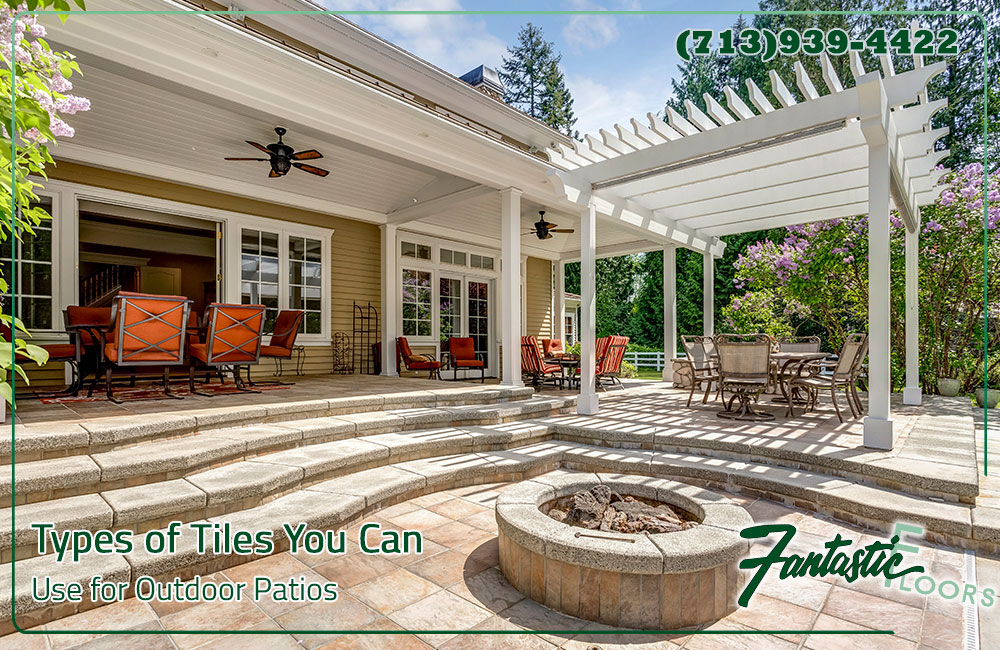
About Fantastic Floors, Inc. We are a successful company with more than 25 years of experience in the market, we have the infrastructure, high quality equipment, materials and supplies to achieve and exceed the expectations of our customers, allowing us to gain the confidence and loyalty for our services.
We have more than 500 residential, 300 properties and 25 commercial customers totally satisfied with our services.
Fantastic Floors.
Fantastic Floors, Best Carpet Installers in Houston, Best Floor Installers in Houston, A/C Duct Cleaning in Houston, Best Carpet Cleaning in Houston, Best Carpet Installation in Houston, Best Carpet Shampoo in Houston, Best Floor Installation in Houston, Carpet Cleaning Companies in Houston, Carpet Cleaning in Houston, Carpet Installation in Houston, Carpet Sale in Houston, Ceramic Tile Sale in Houston, Commercial Carpet in Houston, Commercial Flooring in Houston, Emergency Water Damage in Houston, Floor Installation in Houston, Flooring in Houston, Flooring Companies in Houston, Hardwood Floor Installation in Houston, Professional Carpet Installation in Houston, Professional Floor Installation in Houston
